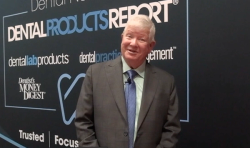- About Us
- Advertise
- Editorial
- Contact Us
- Terms and Conditions
- Privacy Policy
- Do Not Sell My Personal Information
© 2025 MJH Life Sciences™ and Dental Products Report. All rights reserved.
The Must-Have Equipment for Cosmetic Dentists
There are many devices considered essential, but for this author, the most valuable item to own is a dental laser.
In 2019, the prediction for the cosmetic dentistry market was that it would grow to $32.73 billion by 2026. This prediction preceded the COVID-19 pandemic, which caused an unexpected boom in my business as more people spent time looking at their faces online during Zoom meetings and Skype happy hours.
For esthetic dentists, commonly known as cosmetic dentists, the influx of patients many of us have seen in recent years can feel overwhelming. As such, we need easy-to-use and effective equipment to deliver optimal results to every patient. The question is: What technology can help advance our practices while we handle the increased number of patients who have been seeking cosmetic procedures?
The Role of Lasers in Cosmetic Dentistry
As people explore new ways to upgrade their look, cosmetic dentists are charged with helping them achieve the results they want in a way that looks as natural as possible. Although there are many different devices that I use, dental lasers are by far the most valuable and versatile tools and a huge part of my success in recent years. I use BIOLASE’s Waterlase all-tissue lasers for all of my gum-lifting and sculpting procedures. This laser is gentle and minimally invasive; the patient is comfortable as I sculpt. Gingival sculpting also helps bring my cosmetic cases up a notch when it comes to providing the best, most esthetic results.
The benefits of dental lasers stand out most when compared with other technologies and devices that cosmetic dentists can use. Because the Waterlase is gentle, little to no anesthesia is needed in most cases; the procedures are less painful due to this technology. In addition, the minimally invasive approach that dental lasers offer leads to faster healing time. This means patients can enjoy their new, improved smiles even faster than they would if they visited an office where dental lasers were not utilized during cosmetic procedures.
Another benefit of a dental laser is versatility. Lasers can be used for a variety of minimally invasive, cosmetic surgical procedures including gingivectomies, closed-flap crown lengthening, periodontal surgeries, implant repair, periodontal repair surgeries, and even teeth whitening. Every year, I provide my patients with around 2000 porcelain veneers or bonded porcelain restorations, which demonstrates the amount of work that having a laser in my toolbox has enabled me to do.
I am always looking to take on as many patients as I can to create the smile of their dreams. Having 1 piece of technology that allows me to complete such a wide range of cosmetic procedures is beneficial to the growth of my practice. A dental laser, especially an all-tissue laser like the Waterlase, is a worthwhile purchase for any cosmetic dentist. It can pay itself off quickly and you, along with your patients, will continue to reap the benefits.
Additional Valuable Dental Equipment for Cosmetic Dentists
In addition to dental lasers, I utilize other devices to help give my patients the best clinical results, including semiadjustable articulators, 3D simulation guides, and intraoral cameras.
In cosmetic dentistry, semiadjustable articulators aid in proper alignment of the teeth and help us to give patients with occlusal problems the smile they are looking for. When using the semiadjustable articulators during a procedure, several sets of patient models are mounted using a series of bite records. I do all my study work on 1 set and then reconstruct the second set using my diagnostic wax-up protocol.
Articulators are important in creating the correct esthetic and occlusal scheme for each patient. By blending the esthetic and restorative aspects of the case, predictable outcomes can be consistently attained. Using this approach, the health, functional, and esthetic aspects can be balanced so that long-term success is achieved. Without this device, it would be difficult to know exactly how to correctly align the teeth to create the “perfect smile” for a specific patient, because each smile is so different.
Another device that aids in alignment and myriad essential aspects of cosmetic dentistry is a 3D simulation guide. This advanced technology creates a realistic simulation that helps eliminate natural human error that can occur during implant placement in cosmetic dental cases.
In cosmetic dentistry, precision placement of implants in the esthetic zone is critical in attaining the best esthetic results. Appearances are very important. If patients are looking to improve their smiles, they are putting a significant amount of trust in their dentist to get it right. Although we can rely on our judgment to determine the position and direction for implants, human error can diminish the quality of them. This is something cosmetic dentists must avoid.
As someone who surgically places and restores approximately 200 implants each year, it is essential that I get it right the first time. Using a 3D simulation guide helps to give a dentist an immersive experience, which aids us in knowing what to expect even before a procedure begins.
Intraoral cameras also help diagnose problems such as dental decay, tooth fractures, and failing dental restorations. In cosmetic dentistry, intraoral cameras help to educate patients about their current esthetic and dental problems so that they can understand and make better informed consent decisions regarding treatment.
Must-haves for Any Dentist
There are many devices that I consider to be essential in my practice, but the most valuable item that a cosmetic dentist can own is a dental laser. The versatility, minimal invasiveness, and efficiency of dental lasers is unmatched.

 Download Issue: Dental Products Report July 2021
Download Issue: Dental Products Report July 2021

